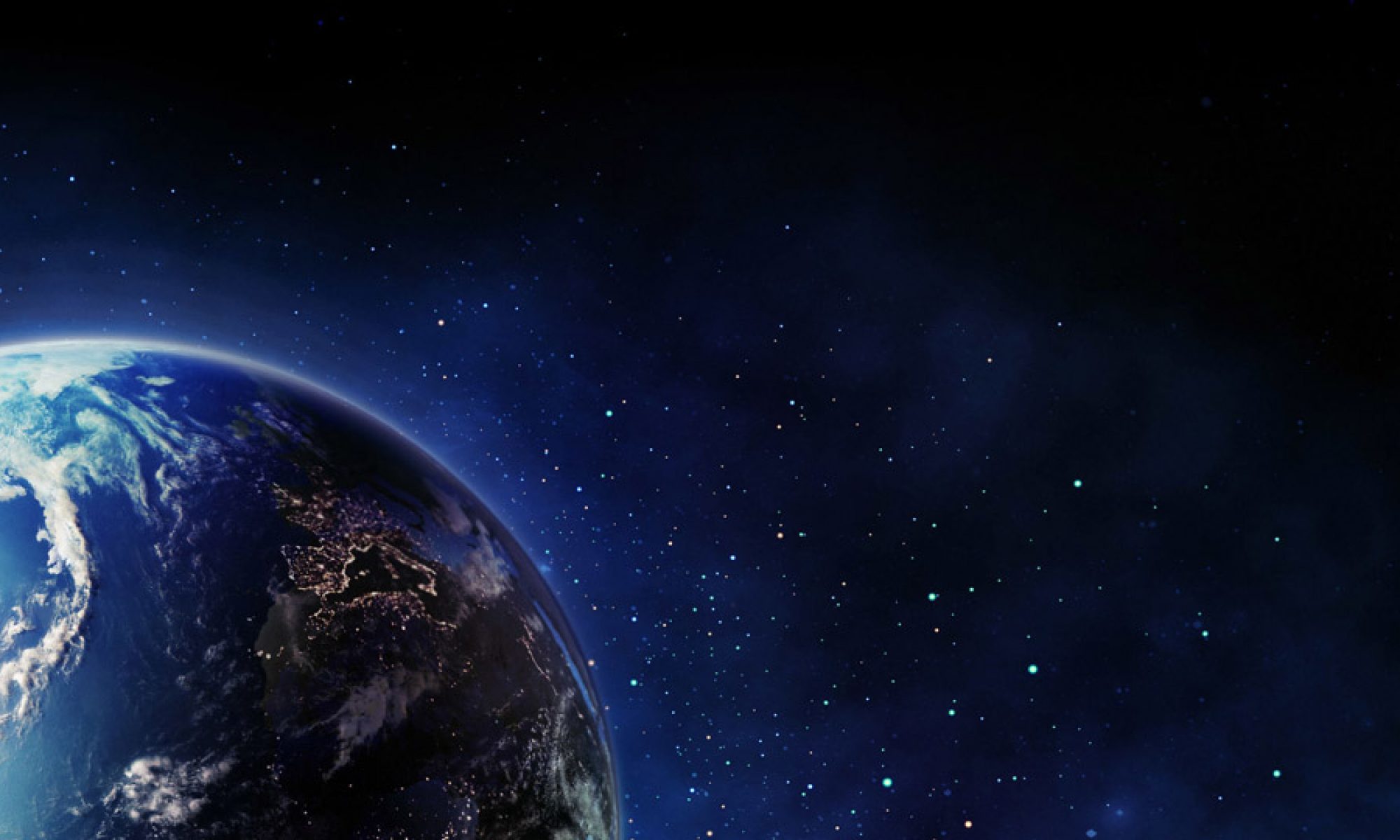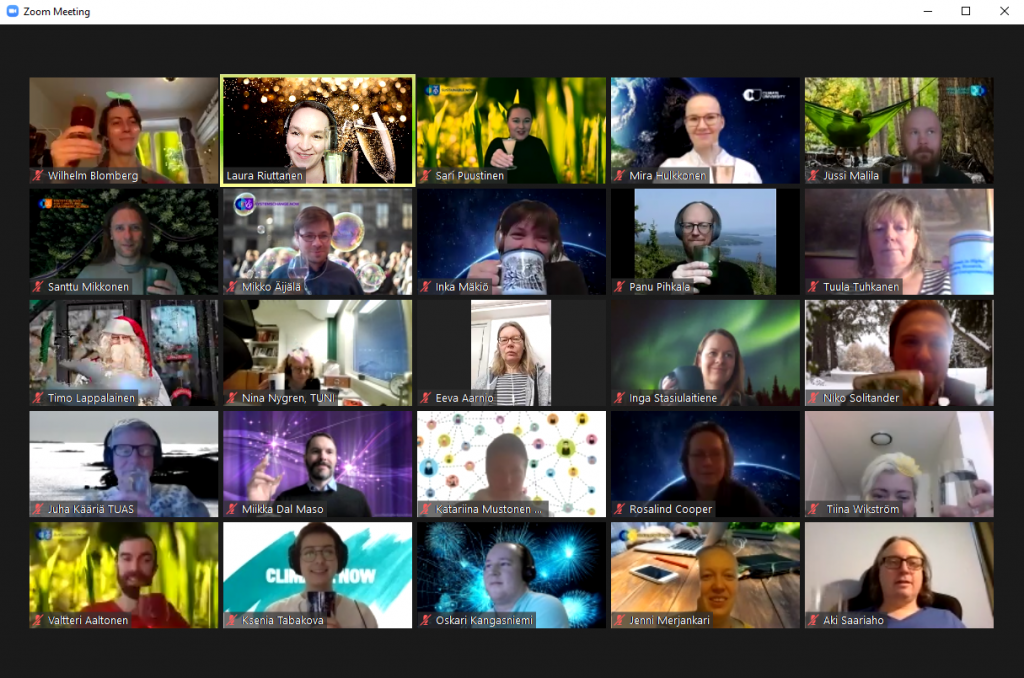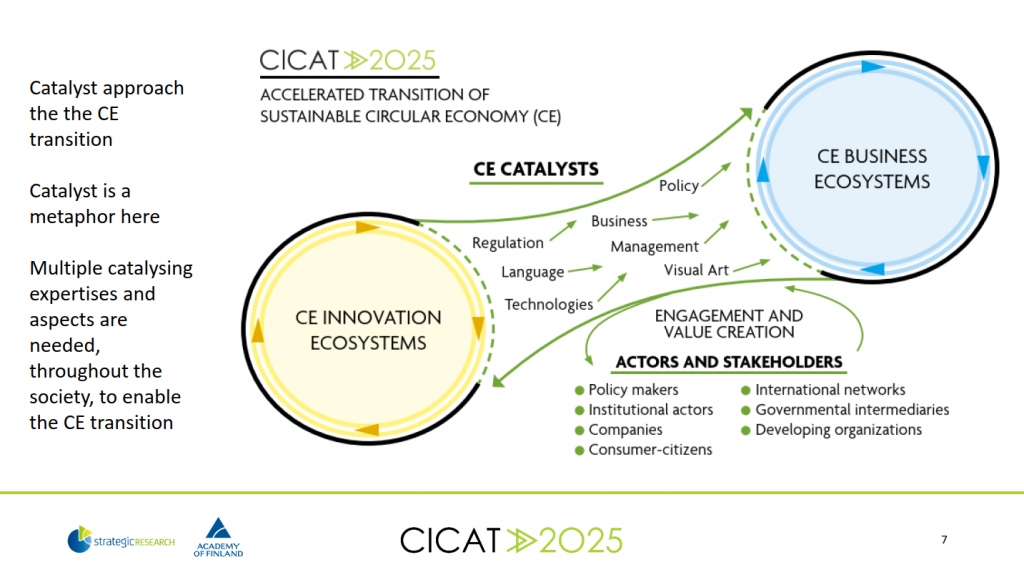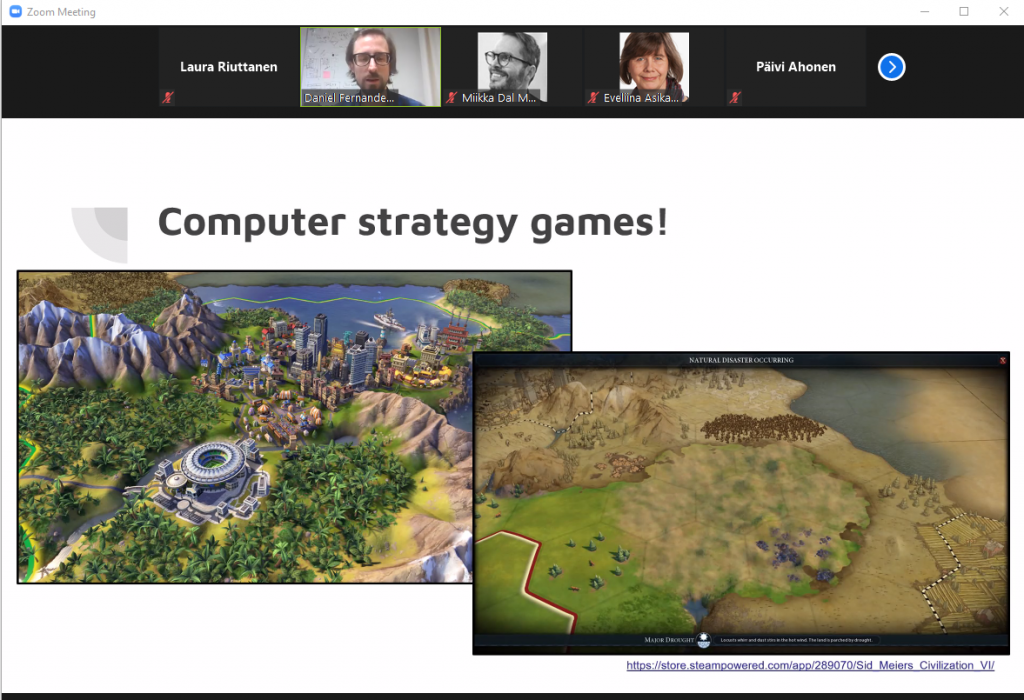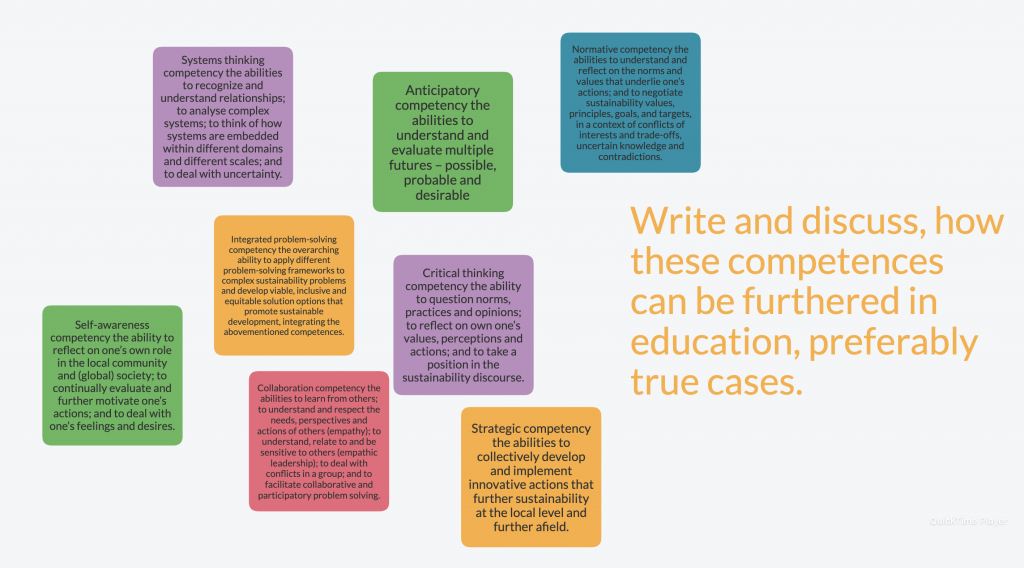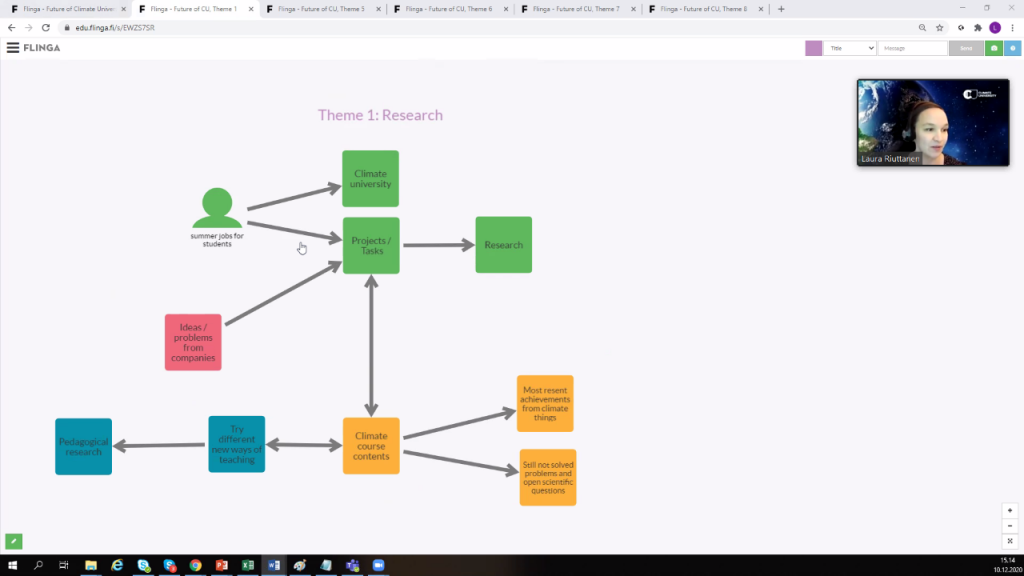The first round of Climate University was wrapped up in Tampere workshop 9.- 10.12.2020. Due to the Coronavirus situation the workshop was held virtually but that did not stop us from having good conversations and activities during the two days. The topic of the first day was summarizing what we have learned during the Climate University and teaching and research for sustainable citizenship. The second day we were concentrating on the future of climate and sustainability teaching and the future of Climate University.
First day
To start the workshop, we had the honour of having Academician Markku Kulmala giving us the opening words. Birgitta Vuorinen brought us greetings from the Finnish Ministry of Education and Culture before Mari Walls, president of Tampere University gave an opening speech.
The rest of the morning session was used to summarize our experiences from Climate University and get to know the new Climate University courses. Our coordinator Laura Riuttanen had prepared a treasure hunt during which the participants could learn about the new courses while trying to find solutions to a puzzle. Before lunch break, we celebrated the success of Climate University by raising a toast.
During the lunch break people also had the possibility to film #ClimateChallenges to challenge companies, politicians, institutions etc. to climate actions. The challenges were filmed by Mikael Nummi and are sent to the challenged individuals or organizations (and shared in social media if the challengers so wish). You can find all the challenges from the Climate University YouTube channel.
The afternoon session concentrated on teaching and research for sustainable citizenship. Our first keynote speaker was Professor Leena-Aarikka Stenroos from Tampere University. She talked about CICAT2025: Circular Economy Catalysts project, which she is the research consortium leader of. We learned how circular economy leads towards more ecologically friendly and sustainable economic growth. This transition can be helped by various factor such as technology and regulations, but also by education. The education viewpoint was explored in more detail by Pirjo Kuula from TAU, who gave us a talk about integrating circular economy, and more broadly sustainability, in the teaching and education of built environment. Constructing buildings and infrastructure is material-intensive and therefore it is critical to teach future civil engineers the importance of recycling materials and avoiding primary materials when moving towards circular economy.
Our third keynote speaker for the day was Anette Mansikka-Aho who gave us a thought-provoking presentation about how to talk about climate change to adults (or anyone else really) who refuse to accept what we know about climate change. Finally, we had professor Kirsi Pauliina Kallio talking about Climate Citizenship and the challenge of tackling a global problem in a world where decisions are made locally. Climate change does not respect borders and our response to climate change should reflect this.
To end the day, we had a workshop lead by our four keynote speakers regarding their topics. Participants could discuss the topic they were most interested in and try to come up with ideas to take advantage of that topic in teaching.
Second day
After some welcoming words by professor Miikka Dal Maso, we started the second day with a keynote speech by Eveliina Asikainen. She talked about Sustainability Competences or how can we design our education so that it leads to a more sustainable world. This does not mean just courses about climate change and sustainability but taking those factors into account in all teaching. Our second keynote talker for the morning session was Daniel Fernandez Galeote. He gave us an interesting talk about how to use games to engage people to talk and think about sustainability and environment.
The rest of the morning was dedicated to two parallel workshops. Under Eveliina’s guidance, the participants could discuss the different sustainability competences and their importance on their degrees or disciplines. The discussions highlighted how integrating the different competences (see the Flinga screenshot below) is a key cornerstone of creating impactful education.
Daniel organized a Game Jam, where people could try to come up with an idea for a game that could be used to teach sustainability issues.
The final session of the workshop was dedicated to talk about the future of Climate University. Meri Löyttyniemi from Aalto University was our last keynote speaker. She brought greetings from UNIFI (Universities Finland) Sustainable Development work group. We were given a talk about how the Finnish universities will take sustainability and climate into account in their future teaching, research, administration and societal interactions.
Our last program was Introduction to the future of the climate university and a workshop held by Laura Riuttanen. Participants could choose to join a topic relevant to the future of Climate University such as research or internationalization.
Oskari Kangasniemi & Miikka Dal Maso
Tampere University
